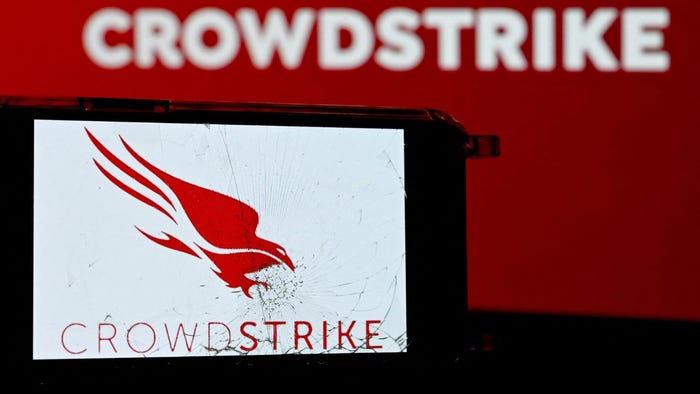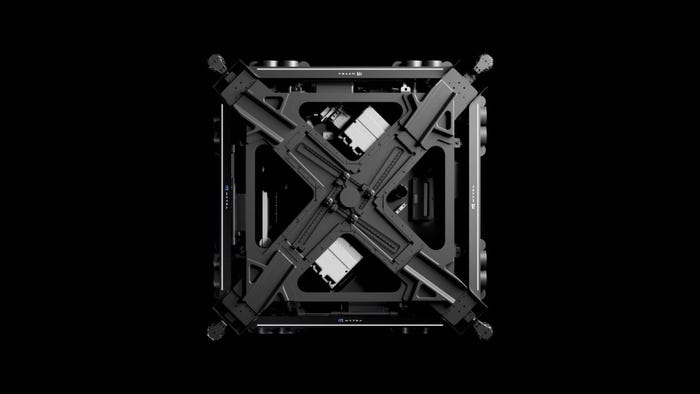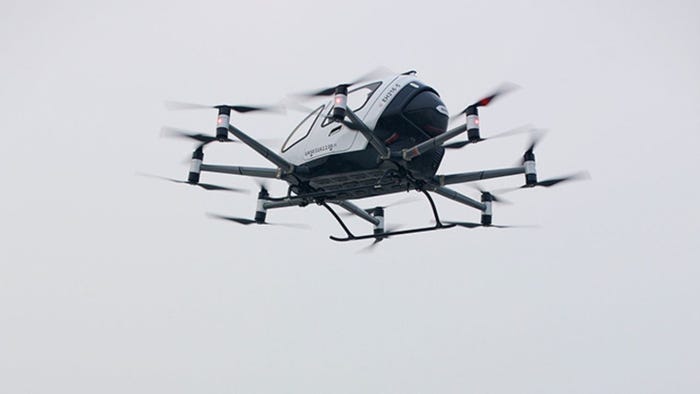Deloitte Taps Quantum for Manufacturing, Supply Chain
Preparations underway for the quantum supply chain revolution
.png?width=1280&auto=webp&quality=95&format=jpg&disable=upscale)
Last week, container ship Xin Hai Tong 23 ran aground in the Suez Canal, stirring fears that it might block passage and affect global shipping for months, like the Ever Given incident in 2021.
While this ship was quickly freed, Ever Given came on the back of the first wave of the global pandemic, demonstrating how both fragile and important the supply chain ecosystem is to daily lives.
While quantum computing could not alone have predicted or prevented these events, Deloitte says it shows potential for logistics companies and supply chain enterprises in optimizing operations, routing and resource allotment. But these benefits have yet to be seen since commercial quantum computers are still some years away.
Talking exclusively to Enter Quantum, Deloitte quantum computing lead Scott Buchholz and smart manufacturing chief technology officer Jimmy Asher said manufacturing, logistics and supply chain enterprises need to be prepared for quantum’s impact.
Demand Sensing
“Quantum is an emerging area for those applications, and most are looking at demand sensing and understanding how that affects their manufacturing process,” said Asher.
“That's not just demand from the customers. Manufacturing is a chain of different nodes and supplies that need to converge together.”
Manufacturing planning uses factors that affect sales, such as weather forecast data and economic trend indicators, to predict demand and build accordingly. However, it may need to consider hundreds of different variables, which could take hours to process, and then be iteratively re-run several with different sliding-scale values to achieve an optimal outcome.
“Where we see the application of quantum coming in is being able to solve those complex equations at a quicker pace, to give almost instant feedback to the user so that they can go through that scenario planning,” said Asher.
When it comes to manufacturing the products, the ace up Deloitte’s sleeve is its smart factory, a working automated production line the company uses to show manufacturers what the future of manufacturing looks like.
“One of the parts of that line is the quality control system that has a little camera that takes pictures of the resulting products,” said Buchholz.
“One of the experiments that we've been working on is how good quantum machine learning is at image processing for quality control. We have things in place so that we can compare the results of what you get classically with the results that you get from the quantum computer so that we can keep track of that as it improves.”
.png?width=700&auto=webp&quality=80&disable=upscale)
Supply Chain
The crisis of 2020 and beyond exposed weaknesses in the global supply chain, but according to Asher, there was already a growing awareness of the need to better understand it, and quantum could support that understanding in the future.
“Quantum, unfortunately, doesn't wave a magic wand and say ‘Let me materialize inventory in an area’,” said Asher. “Manufacturers are interested in how good technologies such as quantum are at scenario planning so that they can ultimately run what-if scenarios in real-time.
“There’s a spectrum. Where we see a lot of energy is from manufacturers saying, ‘Okay if I'm stalled in my production in this particular manufacturing center, how do I ramp up production in another one? How do I shift material that I might have a single source for and investigate moving that to different areas?’
“One of the themes that I often talk about to manufacturers as we focus our attention on those problems is the amount of data that they're dealing with is staggering. If you think about scenario planning with an iterative approach of day-long runs, a complex supply chain may have thousands of variables. To understand the impacts of that could take up to three years using classical computing.”
Quantum on the Production Line
According to Buchholz, manufacturing presents a different challenge in manufacturing than it might in other industries.
“People are trying to figure out if the technology is ready and robust enough to be used 24/7, 365 in a manufacturing line where downtime is lost money,” he said. “My suspicion is that over time, we will see people adopting it. It's also the sort of thing where sometimes it's always best to let somebody else go first.
“The risk tolerance in manufacturing is generally low because taking on too much risk in a manufacturing line is a bad thing. Unlike financial services, if you break a physical machine in a manufacturing plant it can be a significant expense and downtime, some of these machines are custom made or few of them exist in the world. People’s risk tolerance for that is understandably low.”
This article first appeared on IoT World Today's sister site, Enter Quantum.
About the Author(s)
You May Also Like
.png?width=100&auto=webp&quality=80&disable=upscale)
.png?width=400&auto=webp&quality=80&disable=upscale)






